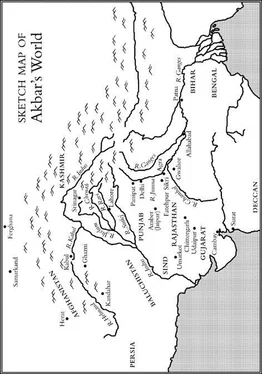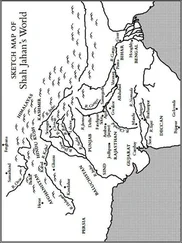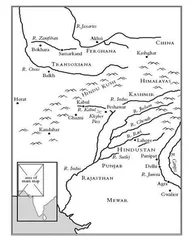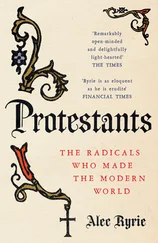Alex Rutherford - Ruler of the World
Здесь есть возможность читать онлайн «Alex Rutherford - Ruler of the World» весь текст электронной книги совершенно бесплатно (целиком полную версию без сокращений). В некоторых случаях можно слушать аудио, скачать через торрент в формате fb2 и присутствует краткое содержание. Жанр: Исторические приключения, на английском языке. Описание произведения, (предисловие) а так же отзывы посетителей доступны на портале библиотеки ЛибКат.
- Название:Ruler of the World
- Автор:
- Жанр:
- Год:неизвестен
- ISBN:нет данных
- Рейтинг книги:3 / 5. Голосов: 1
-
Избранное:Добавить в избранное
- Отзывы:
-
Ваша оценка:
- 60
- 1
- 2
- 3
- 4
- 5
Ruler of the World: краткое содержание, описание и аннотация
Предлагаем к чтению аннотацию, описание, краткое содержание или предисловие (зависит от того, что написал сам автор книги «Ruler of the World»). Если вы не нашли необходимую информацию о книге — напишите в комментариях, мы постараемся отыскать её.
Ruler of the World — читать онлайн бесплатно полную книгу (весь текст) целиком
Ниже представлен текст книги, разбитый по страницам. Система сохранения места последней прочитанной страницы, позволяет с удобством читать онлайн бесплатно книгу «Ruler of the World», без необходимости каждый раз заново искать на чём Вы остановились. Поставьте закладку, и сможете в любой момент перейти на страницу, на которой закончили чтение.
Интервал:
Закладка:
Obediently, Salim sat down by his father’s side. As he did so Akbar continued, ‘Ahmed Malik has told me that I will soon leave this world.’
‘I pray that will not be the case just yet,’ said Salim, realising as he spoke that there was truth behind his conventional words. Now that the crown he had craved for so long was nearly his, he felt the same apprehension as he had through much of his life. How could he measure up to his father’s achievements? Quietly he added, ‘But if you are to die, you do so happy and confident in your immense achievements.’
‘One of the European priests once told me that a philosopher born centuries before the foundation of their Christian faith defined the essence of tragedy as being that no man could be called truly happy until he had died in peace. I have long seen the truth in these words as I have strived to arrange the affairs of our empire for the future so that my work should be built on and not dissipated after I die. Now that my death is near it would help me die in peace if you would truly listen to some parting advice from me.’
‘Gladly. Over these last hours since you formally appointed me as your successor I have appreciated the enormity of the responsibility soon to fall on me. I would welcome it.’
‘First, remember never to let the empire stagnate. If it does not grow and change by responding to events it can only decline.’
‘I understand. I will continue the campaign in the Deccan. Our borders to north, east and west rest on rivers and mountains. The south provides the greatest opportunity for expansion.’
‘Second, always be alert for rebellion.’ Salim thought for a moment that Akbar was still reproaching him, but there was no hint of that in Akbar’s face as he continued, ‘One of my historians tells me I’ve overcome more than one hundred and forty rebellions during my reign. They break out when armies have no prospect of campaigns or booty to distract them from plotting.’
Salim nodded.
‘Be tolerant to all, whatever their position or religion, and be merciful whenever you can. It will help unite our subjects. But when your mercy is misinterpreted or the crime heinous, act decisively and ruthlessly so that all may know your power. Avoid the mistakes of my father Humayun. It is better a few die early as an example than many later.’
‘I will try not to lash out but to react firmly and with thought,’ Salim replied almost mechanically. What his father was saying was obvious and certainly not new. Perhaps Akbar was congratulating himself as he reviewed his life rather than truly seeking to help him. But then, as if reading Salim’s thoughts, Akbar said, ‘Now for knowledge I have gleaned the hard way from my mistakes.’
Salim started. It was the first time he had heard his father admit any but the most trivial mistakes.
‘Pay attention to your family. Our dynasty is now so much stronger than any potential external rival that the greatest threat to our power must come from dissension among ourselves. My father indulged his half-brothers too much. I wanted to show that power could not be shared and that my authority was absolute. I still believe that is true — that only one man can rule at a time. However, when you and your brothers grew, I expected you to develop my attributes and share my attitudes while unquestioningly obeying my instructions. I did not understand that the two were scarcely compatible. It would never have been in my own nature not to raise questions or to seek independent command if my own father had lived.’
Salim saw Akbar wince, whether through the pain in his abdomen or the recollection of his behaviour, and said, ‘I will try to make allowances for the ambitions of my sons, but I have already begun to understand how difficult it is.’
‘I’ve not helped by unsettling you all, by constantly testing which of you might be the most suitable successor. But even had I not, the longer I have lived the more clearly I have realised that the relationship between parents and children is an unequal one. The parent concentrates his future hopes as well as his love on the child and hence scrutinises and guides him closely. The child resents the burden and longs to strike out independently. He sees all his failings, faults and frustrations as due to his parents and his virtues and successes as solely his own creation. He believes he can do better than the parent if only given a chance.’
‘I see that more clearly now,’ Salim acknowledged, ‘now that my sons are growing older. But I also felt in awe of you and your great and unique achievements. It made me awkward and surly around you. It should not have.’ He paused, but then after a moment continued quietly, ‘I am truly sorry for the pain I gave you.’
‘And I for that I inflicted on you. But I now beg only this of you. Learn from the past but look to the future.’ As he spoke, Akbar extended his dry hand towards his eldest son. Salim silently took it in his own, feeling closer to his father than he had done since his early childhood, united with him in their hopes for the dynasty.
To the slow beating of kettledrums Salim mounted the steps of the marble dais to the throne that awaited him in the Hall of Public Audience in the Agra fort. On his finger was Timur’s ring bearing the emblem of the tiger that he had taken gently from his dead father’s hand nine days ago and placed upon his own. The eagle-hilted Alamgir hung by his side and round his neck was a triple string of uncut emeralds intertwined with pearls that had once belonged to his great-grandfather Babur. A sense of continuity with a heroic past filled Salim with pride. It was as if his ancestors were here among the ranks of his nobles and commanders, watching him claim the throne they had fought so hard for and urging him on to fresh glories.
Turning, Salim sat down on the green brocade cushions and rested his bejewelled hands on the throne’s golden arms. ‘I have observed nine days of mourning for my respected father, whose body now lies in his favourite gardens in Sikandra where I will construct his tomb with all the magnificence due to him. The khutba was read in my name on Friday in the mosques and the time has come for me to present myself to you as your new emperor.’
Salim paused and surveyed the rows of men before him as he had so often seen his father do. The world seemed a different place from here. The fate not only of those present but of million upon million of his subjects rested in his hands. It was an awesome, almost godlike responsibility, but also inspiring, and he sat up yet straighter on his throne. As he did so, his eyes met those of Suleiman Beg, standing beside the tall figure of Abdul Rahman, and the faint curve of his milk-brother’s mouth told him he understood exactly how he was feeling.
Salim looked down at his sons, positioned just below the dais to his right. Eighteen-year-old Khusrau, splendid in a purple silk tunic and with diamonds flashing in his turban, was standing beside the thirteen-year-old Khurram, whose pinched face showed the marks of his continuing grief at the death of the grandfather who had meant so much to him. Sixteen-year-old Parvez was just behind them. They were all of them fine youths but it was Khusrau on whom Salim’s gaze lingered longest. He must forgive Khusrau his rash ambition and find ways to reconcile this mettlesome son. There must be a way to create a bond with him and so break the cycle of frustrated ambition, envy and uncertainty that had blighted his own happiness and his relationship with his father.
Dragging his mind back to the present, Salim continued his address. ‘I have chosen a new name by which I wish to be known as your emperor. It is Jahangir, ‘Seizer of the World’. I have taken it because the business of kings is seizing their destiny and controlling the world. My father has left me a mighty empire. With your help, my loyal subjects, I pledge to make it mightier still.’
Читать дальшеИнтервал:
Закладка:
Похожие книги на «Ruler of the World»
Представляем Вашему вниманию похожие книги на «Ruler of the World» списком для выбора. Мы отобрали схожую по названию и смыслу литературу в надежде предоставить читателям больше вариантов отыскать новые, интересные, ещё непрочитанные произведения.
Обсуждение, отзывы о книге «Ruler of the World» и просто собственные мнения читателей. Оставьте ваши комментарии, напишите, что Вы думаете о произведении, его смысле или главных героях. Укажите что конкретно понравилось, а что нет, и почему Вы так считаете.












